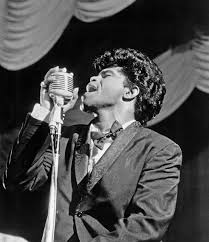Top 1970s Black Music Hits
Marvin Gaye – “What’s Going On” (1971)
Source: https://www.billboard.com/charts/hot-100/1971-06-12
Stevie Wonder – “Superstition” (1972)
Source: https://www.billboard.com/charts/hot-100/1973-01-20
Al Green – “Let’s Stay Together” (1971)
Source: https://www.billboard.com/charts/hot-100/1972-02-12
Earth, Wind & Fire – “September” (1978)
Source: https://www.billboard.com/charts/hot-100/1978-09-23
Chic – “Le Freak” (1978)
Source: https://www.billboard.com/charts/hot-100/1978-12-09
The Jackson 5 – “I Want You Back” (1969)
Source: https://www.billboard.com/charts/hot-100/1969-12-06
Gloria Gaynor – “I Will Survive” (1978)
Source: https://www.billboard.com/charts/hot-100/1978-12-23
Kool & The Gang – “Celebration” (1980)
Source: https://www.billboard.com/charts/hot-100/1980-11-29
The Commodores – “Brick House” (1977)
Source: https://www.billboard.com/charts/hot-100/1977-09-03
Sister Sledge – “We Are Family” (1979)
Source: https://www.billboard.com/charts/hot-100/1979-05-19
Please note that these sources are based on the Billboard Hot 100 charts, which track the popularity of songs in the United States. This is not an exhaustive list, and there are many other influential Black artists and hits from the 1970s.
“Papa’s Got a Brand New Bag” (1965) – This song marked the beginning of James Brown’s foray into funk music and became one of his signature tracks.
“I Got You (I Feel Good)” (1965) – One of Brown’s most iconic songs, “I Feel Good” is a feel-good anthem showcasing his unique vocal style and stage presence.
“It’s a Man’s Man’s Man’s World” (1966) – A powerful ballad that showcases Brown’s vocal prowess and emotional intensity.
“Cold Sweat” (1967) – This song features a distinctive horn arrangement and further solidified Brown’s status as a pioneer of funk music.
“Say It Loud – I’m Black and I’m Proud” (1968) – An empowering anthem during the Civil Rights Movement, this song became a rallying cry for African Americans.
“Give It Up or Turnit a Loose” (1969) – This funk classic showcases Brown’s innovative arrangements and irresistible groove.
“Get Up (I Feel Like Being a) Sex Machine” (1970) – A high-energy, danceable track, this song highlights Brown’s ability to create infectious grooves.
“Super Bad” (1970) – Another funk anthem with a catchy, driving beat and powerful vocals, “Super Bad” is one of Brown’s most enduring songs.
“Get on the Good Foot” (1972) – A funky, upbeat track, “Get on the Good Foot” is known for its syncopated rhythm and captivating horn section.
“The Payback” (1973) – One of Brown’s most successful records, this song features a gritty, raw sound that influenced many future funk and hip-hop artists.
The Sugarhill Gang – “Rapper’s Delight” (1979) – Often considered the first commercially successful rap song, “Rapper’s Delight” introduced many people to hip hop music.
Fatback Band – “King Tim III (Personality Jock)” (1979) – Released just before “Rapper’s Delight,” this song is considered one of the earliest rap recordings.
Grandmaster Flash and the Furious Five – “Superrappin'” (1979) – An influential early hip hop song, “Superrappin'” features the group’s innovative rapping style and DJing techniques.
Since there aren’t 15 recorded hip hop songs from the 1970s, here are some tracks and artists that were influential in the development of hip hop culture:
James Brown – “Funky Drummer” (1970) – The drum break in this song is one of the most sampled breaks in hip hop history.
Kool Herc – Kool Herc is considered the “father of hip hop” and was instrumental in developing the breakbeat DJing technique during the early 1970s at his parties in the Bronx.
Afrika Bambaataa – Afrika Bambaataa was an influential DJ and leader of the Universal Zulu Nation during the 1970s, promoting hip hop culture and organizing events.
DJ Grandmaster Flash – Grandmaster Flash was a pioneering DJ in the 1970s, known for his innovative techniques such as cutting, scratching, and mixing records.
DJ Kool Herc’s Breakbeat Parties – In the early 1970s, DJ Kool Herc held block parties in the Bronx, playing funk and soul records and focusing on the “breaks,” which laid the foundation for hip hop music.
The Last Poets – “When the Revolution Comes” (1970) – A proto-rap group, The Last Poets released several spoken-word albums in the late 1960s and early 1970s that influenced the development of hip hop.
Gil Scott-Heron – “The Revolution Will Not Be Televised” (1971) – Gil Scott-Heron’s spoken-word recordings often featured political and social themes, and his style and content were precursors to hip hop.


